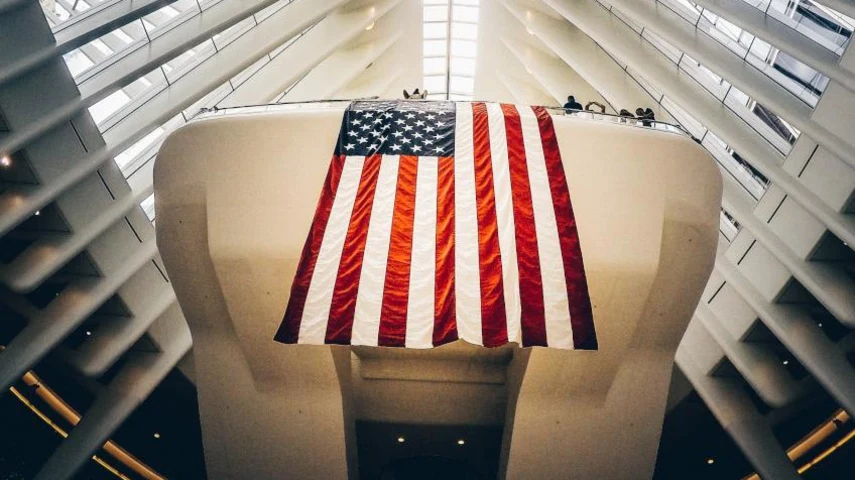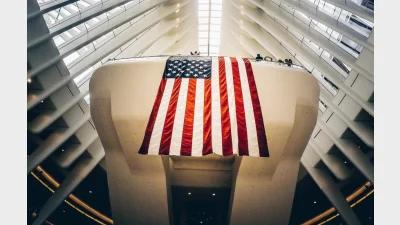UniSuper says it’s hit ‘peak investment’ in US



UniSuper has reached “peak investment” in US assets and is now preparing to reassess its exposures amid ongoing sharemarket volatility.
The $149 billion fund will be “questioning” its commitment to the US market following the imposition of tariffs by the US on its trading partners, which has sent global share markets into a spiral of volatility.
Speaking on the fund’s podcast this week, John Pearce, chief investment officer at UniSuper, said: “Medium-term, I think there are big asset allocation decisions to be made.”
“In particular, like every other fund in Australia, we have quite a large exposure to US assets, and that’s been a very good place to be investing over the last couple of years, particularly given the US tech story. We’ll be questioning that commitment,” Pearce shared.
Last week, US shares fell 9.1 per cent and are now down around 17 per cent from their February highs.
Noting that he once believed in “American corporate exceptionalism”, Pearce said Donald Trump “is turning out to be horrible for business”.
“The biggest threat to American corporate exceptionalism is indeed Donald Trump,” he said. “Like every other fund, we are questioning our exposure to the US. It would be fair to say that we’ve hit peak exposure and will be reducing over time.”
Pearce is not the only one questioning US exceptionalism, with AMP’s Shane Oliver declaring on Monday that “US exceptionalism” may be drawing to a close.
Also this week, BlackRock declared it has turned neutral on US equities.
After last month declaring it expects uncertainty to ease within six to 12 months, and is therefore remaining overweight on US equities, the wealth giant announced a shift on Tuesday.
“Trade tensions have triggered a risk asset sell-off. We see volatility persisting for some time, so we shorten our tactical horizon to three months and reduce risk-taking, turning neutral on US equities and preferring short-term Treasuries,” it said.
BlackRock acknowledged that while it earlier expected risk assets to remain under pressure until uncertainty eases, it now believes policy ambiguity may persist for longer than anticipated, citing a greater drag on growth and a renewed inflation threat.
“We still believe US stocks will eventually reclaim global leadership due to mega forces – like the buildout and adoption of artificial intelligence. But for now, we shorten our tactical horizon to three months and reduce risk,” it said, adding that it is reducing equity exposure, including to US and Chinese stocks, and allocating more to short-term US Treasuries.
“If clarity comes quickly, we would up risk-taking again,” the wealth giant said.
For Pearce, clarity can’t come soon enough, with the fund executive declaring “we will get through this crisis”.
“The current crisis, it’s man-made. And it’s made pretty much by a single man,” he said.
“We know what the solution is here, the solution is for rational people to get around and understand the havoc that they have created and get to a sensible compromise. We know what the solution is, and let’s hope that common sense prevails. In the meantime, we might have to endure just a bit more pain.”
‘Turbulence may take years to play out’
JP Morgan Chase CEO Jamie Dimon also flagged the risks of trade wars and their potential economic fallout for the US in his latest 60-plus page letter to shareholders.
“The economy is facing considerable turbulence (including geopolitics), with the potential positives of tax reform and deregulation and the potential negatives of tariffs and ‘trade wars’, ongoing sticky inflation, high fiscal deficits and still rather high asset prices and volatility,” Dimon said.
“Whatever you think of the legitimate reasons for the newly announced tariffs – and, of course, there are some – or the long-term effect, good or bad, there are likely to be important short-term effects.”
Dimon noted that “whether or not the menu of tariffs causes a recession remains in question”, but warned that “it will slow down growth”.
He, however, highlighted that the US enters this time of uncertainty with “high equity and debt prices”, even after the recent decline.
“No matter how you measure it, equity valuations are still well above their historical averages. And credit spreads are still near the low end of these same ranges,” he said, but added that markets may be overly optimistic in pricing a soft landing, cautioning that ongoing turbulence could take years to fully unfold.
“All of these cross currents and turbulence may take years to play out,” Dimon said, adding that, at the end of the day, he still has “an abiding faith in America”.
Recommended for you
New data has shown a progressive deterioration in risk appetite among instos even prior to Donald Trump’s latest round of tariffs.
Investors have slashed their US equity allocations to the lowest level on record, according to new data from Bank of America.
The message from experts in international trade and economists is that the Australian government should refrain from retaliating with reciprocal tariffs.
The market correction forecast by AMP’s chief economist is in full swing, with three weeks of turbulence culminating in significant losses on Tuesday.












